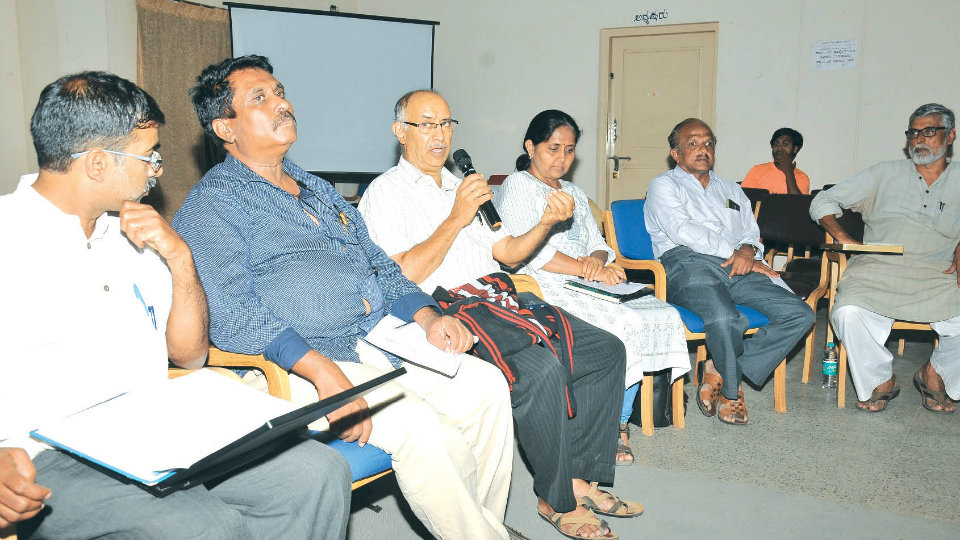Mysuru: The last day for suggestions and inputs to the Draft National Education Policy (NEP)-2019 is June 30 and this date must be extended, said Education experts Dr. S.N. Gananath, Shivananda Hombala, Brinda Rao, Ashok Rao and a few others.
They were speaking at NEP-2019 interaction jointly organised by Arivu Samskrutika Trust and Mysuru District Journalists Association (MDJA) at Pathrakartara Bhavan here on June 26.
Dr. Gananath said that when National Education Policy is being drafted then the opinions of all the experts in the field must be taken into consideration and only then it must be implemented. And along with this the present D.Ed and B.Ed must be given to all the teachers. Only then will the children be benefited by better education standards.
Realising the importance of early childhood learning programmes, the National Education Policy has stated that by 2025 the improvement of standard of education between 3-6 years must come under Ministry of Education (renaming of Human Resources Development). Hence a clarity is needed on this, he said.
Education expert Ashok Rao said that the NEP has pointed out that it will lay more emphasis for first to fifth standard education and still more emphasis for teaching of mathematics and clarity is required on this issue also. Retaining the salient features and the most important elements, the policy has suggested that the syllabus must be reduced, but this looks like it is due to the influence of western education. However, this should be according to Indian education system and in the background of the geographical boundaries of the country, he pointed out.
Compulsory Hindi is not correct: In the interest of the students’ future, three-language formula is good. However, to make it compulsory is not a good idea. Just because a North Indian MP suggests that Hindi must be made compulsory, how appropriate is it on the part of the Central Government to issue a circular. Then the MPs from Karnataka must strongly oppose the imposition of Hindi, he urged.
Brinda Rao said due to the present syllabus there is a lot of pressure on the students. Based on the students’ learning capacities the teaching methods have been proposed. Clarity is required on this issue also. Along with this based on the development cycle of the student, the 5+3+3+4 system the new syllabi and curriculum has been proposed. A discussion on this regarding the framing of the syllabi also needs to be done, she added.
In the present D.Ed and B.Ed programmes, it is not easy to produce quality teachers. Instead along with graduate programmes, the teacher training must also be included to improve the quality of teaching, she urged.
Shivananda Hombala said that stress must be laid on students being taught about vocational education at the high school level. The social and human values must also be given importance. The students’ interests must be identified and then they should be directed to pursue their interests, he said. In the interaction MDJA President C.K. Mahendra, Dr. M.C. Manohar, Janardhan and others were present.








Recent Comments